Mechanical and hydraulic bicycle disc brakes: How do they differ and which ones are worth using and when?
When it comes to bicycle brakes, there are two main types that riders can choose from: mechanical disc brakes and hydraulic disc brakes. Both systems offer their own set of advantages and considerations. In this article, we will explore the differences between mechanical and hydraulic disc brakes, discuss their respective benefits and drawbacks, and provide insights on when each type is worth using. Additionally, we will address the importance of cleaning disc brakes on bicycles and share tips for proper maintenance. Mechanical and Hydraulic Disc Brakes: An Overview Mechanical Disc Brakes Mechanical disc brakes utilize a cable-operated system to engage the brake caliper and squeeze the brake pads onto the rotor. This system relies on the rider's physical force applied to the brake lever, which then transfers the power through the cable to activate the braking mechanism. Mechanical disc brakes are known for their simplicity and ease of installation, making them a popular choice among riders who prefer a straightforward brake system. Hydraulic Disc Brakes On the other hand, hydraulic disc brakes employ a fluid-filled system to transmit force from the brake lever to the caliper. When the rider applies pressure to the brake lever, hydraulic fluid is pushed through the system, activating the caliper and causing the brake pads to engage the rotor. Hydraulic disc brakes offer several advantages, including enhanced modulation, improved stopping power, and a self-adjusting feature that compensates for pad wear. Differences Between Mechanical and Hydraulic Disc Brakes Modulation and Power Hydraulic disc brakes excel in terms of modulation, allowing riders to apply varying amounts of braking power smoothly and precisely. This makes them ideal for riders who require fine control over their braking, such as in technical downhill sections or during aggressive cornering. On the other hand, mechanical disc brakes may provide less modulation due to the cable-operated system, but they still offer reliable stopping power and are suitable for most recreational riding situations. Maintenance and Adjustments In terms of maintenance, hydraulic disc brakes require less frequent adjustments compared to their mechanical counterparts. Hydraulic systems are self-adjusting, which means that as the brake pads wear down, the system automatically compensates for the changes, ensuring consistent performance. Mechanical disc brakes, on the other hand, require periodic adjustments to account for pad wear and cable tension. This maintenance aspect should be considered when choosing between the two brake types. Complexity and Installation Mechanical disc brakes are generally simpler in design and installation. They consist of fewer components and are easier to set up and maintain. Hydraulic disc brakes, on the other hand, involve a more intricate system with hydraulic lines, pistons, and fluid reservoirs. While the installation process may be more involved, many riders find that the benefits of hydraulic disc brakes outweigh the initial setup complexity. Which Brake System Should You Choose? The choice between mechanical and hydraulic disc brakes ultimately depends on your riding style, preferences, and intended use of the bicycle. Here are a few scenarios to consider: Recreational Riding: If you primarily ride for leisure, commuting, or light off-road trails, mechanical disc brakes offer reliable performance and ease of maintenance at an affordable price point. Technical and Aggressive Riding: For riders who tackle challenging terrains, downhill descents, or aggressive riding styles, hydraulic disc brakes provide superior modulation, increased stopping power, and consistent performance under demanding conditions. Ease of Maintenance: If you prefer a brake system that requires less frequent adjustments and maintenance, hydraulic disc brakes offer the advantage of self-adjustment and minimal cable tension adjustments. Budget Considerations: Mechanical disc brakes are generally more budget-friendly, making them an excellent choice for riders seeking reliable braking performance without breaking the bank. Professional Competition: For competitive riders or those participating in professional events, hydraulic disc brakes are often preferred due to their superior modulation and stopping power, providing a competitive edge when milliseconds count. Should Disc Brakes Be Cleaned on a Bicycle? Absolutely! Proper maintenance and cleaning of disc brakes are essential to ensure optimal performance and safety. Over time, dirt, dust, brake pad residue, and other contaminants can accumulate on the rotor and brake pads, impairing braking efficiency. Here are some important steps to follow when cleaning disc brakes on a bicycle: Prepare the Bike: Before starting the cleaning process, make sure your bike is secured and in a stable position. If necessary, remove the wheel to gain easier access to the disc brake assembly. Clean the Rotor: Use a specialized disc brake cleaner or isopropyl alcohol to clean the rotor surface. Apply the cleaner and gently wipe the rotor with a clean, lint-free cloth or a dedicated rotor-cleaning tool. Ensure that no debris or residue remains on the rotor. Clean the Brake Pads: Carefully remove the brake pads from the caliper. Clean the brake pad surfaces using the same disc brake cleaner or isopropyl alcohol. Be cautious not to contaminate the pads with any oil, grease, or cleaning agents. Reassemble and Test: Once the rotor and brake pads are clean and dry, reassemble the brake components following the manufacturer's instructions. Double-check the alignment and proper functioning of the brakes before taking your bike for a ride. Remember to conduct regular maintenance checks and cleaning sessions to prevent excessive buildup and maintain optimal brake performance. Frequently Asked Questions Q: How often should I clean my bicycle's disc brakes? The frequency of cleaning your bicycle's disc brakes depends on various factors such as riding conditions, terrain, and weather. As a general guideline, it is recommended to clean and inspect the disc brakes every few months or whenever you notice a decrease in braking performance or squealing noises. Q: Can I use regular household cleaners to clean my disc brakes? No, it is not advisable to use regular household cleaners or degreasers on your disc brakes. These products may contain substances that can damage the brake pads, rotor, or other brake components. It is best to use specialized disc brake cleaners or isopropyl alcohol for effective and safe cleaning. Q: Should I bed in my disc brakes after cleaning? Bedding in or breaking in your disc brakes is an important step after cleaning or installing new brake pads. This process involves gradually applying and releasing the brakes to transfer a thin layer of brake pad material onto the rotor, enhancing braking performance and reducing noise. Q: Can I reuse the cleaning cloth or tool for other purposes after cleaning disc brakes? It is recommended to dedicate the cleaning cloth or tool used for disc brake cleaning solely for that purpose. Reusing the cloth or tool for other cleaning tasks may introduce contaminants that can compromise brake performance. Q: Should I clean the brake rotor if I accidentally apply chain lube or oil on it? Yes, if you accidentally apply chain lube or oil on the brake rotor, it is essential to clean it immediately. Use a specialized disc brake cleaner or isopropyl alcohol to remove any oil or grease residue from the rotor surface. Failure to clean the rotor may result in decreased braking performance or noisy operation. Q: Can I use compressed air to dry the cleaned disc brakes? It is generally not recommended to use compressed air to dry the cleaned disc brakes. The high-pressure air can potentially force contaminants deeper into the brake system or cause damage to delicate brake components. Instead, allow the brakes to air dry naturally or use a clean, lint-free cloth to pat them dry. Introducing OC1 Brake Cleaner: The Ultimate Solution for Bike Brake Maintenance Keeping your bike's brake system in optimal condition is vital for a safe and enjoyable riding experience. Among the various products available, OC1 Brake Cleaner stands out as a reliable and effective solution. With its powerful formula, OC1 Brake Cleaner tackles stubborn deposits and grime that can compromise your brake's performance. It efficiently removes brake dust, oil, grease, and other contaminants, restoring your brake's efficiency and responsiveness. What sets OC1 Brake Cleaner apart is its versatility. It is suitable for all types of bike brakes, including mechanical and hydraulic disc brakes. Whether you're a mountain biker, road cyclist, or commuter, OC1 Brake Cleaner is designed to meet your specific needs. Using OC1 Brake Cleaner is a breeze. Simply spray it onto the brake components and let its powerful aerosol formula penetrate the surfaces. The cleaner quickly evaporates, leaving behind a clean and residue-free surface. This makes it incredibly convenient for regular maintenance and on-the-go cleaning. With safety in mind, OC1 Brake Cleaner is formulated to be safe for use on all brake parts and carbon fiber components. It leaves no marks or stains, ensuring your bike maintains its sleek appearance. However, it's important to note that OC1 Brake Cleaner should not be used on plastic, painted, or varnished surfaces. For those seeking the best performance from their bike brakes, OC1 Brake Cleaner is a reliable choice. Its powerful degreasing action not only removes contaminants but also rehydrates disc brake pads, reducing brake squeal and extending their lifespan. This ensures that your brakes operate at their full potential, giving you confidence on every ride. In conclusion, when it comes to bike brake maintenance, OC1 Brake Cleaner is a top-notch product. Its effectiveness, versatility, and safety make it a must-have for any cyclist. By regularly cleaning your brake system with OC1 Brake Cleaner, you'll prolong the life of your brakes, enhance their performance, and enjoy a smoother and more reliable ride. Don't settle for subpar brake cleaning solutions—choose OC1 Brake Cleaner and experience the difference it can make for your bike. Conclusion Mechanical and hydraulic disc brakes offer distinct advantages and considerations for cyclists. The choice between the two depends on factors such as riding style, budget, and desired performance characteristics. Regardless of the brake type, proper maintenance and cleaning are crucial to ensure optimal braking performance and safety. By following recommended cleaning procedures and conducting regular checks, you can enjoy reliable and efficient braking on your bicycle. Remember, when in doubt or for more specific instructions, always consult the manufacturer's guidelines or seek professional assistance.

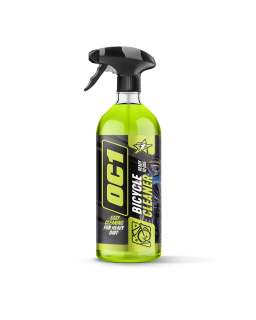
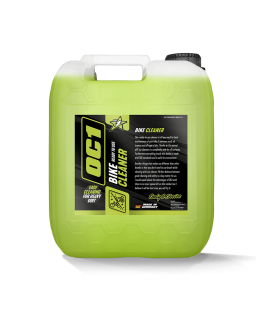
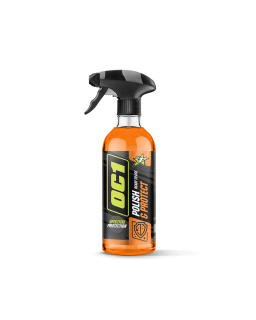
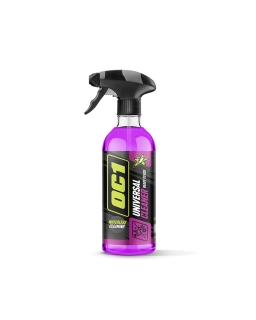

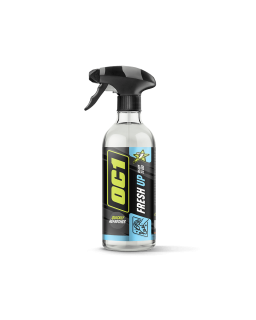
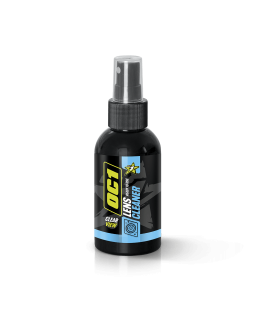
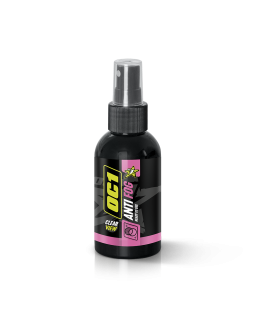

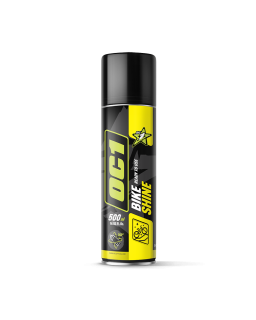
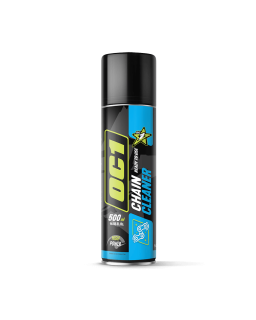
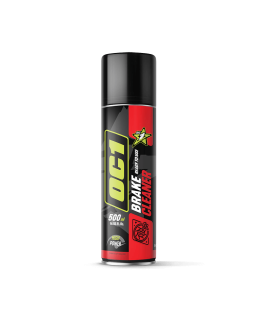

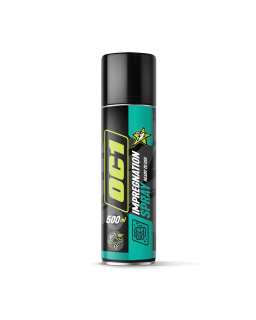
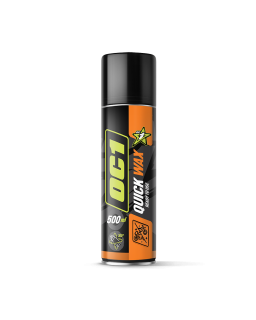
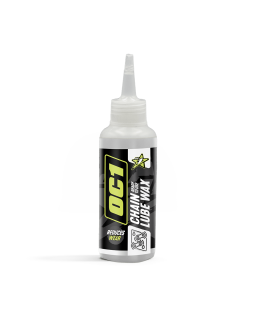
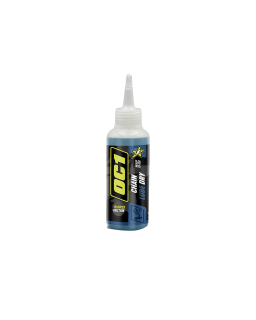
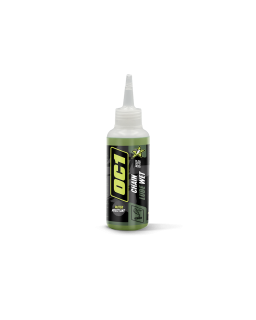
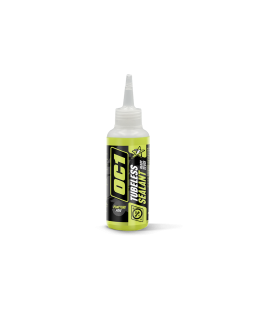
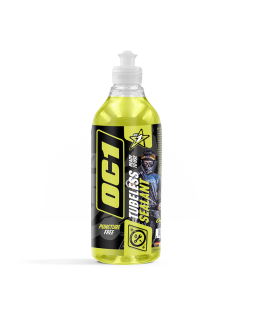
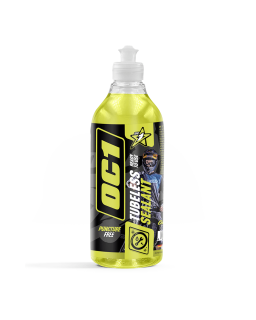
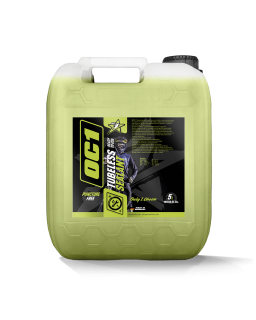

Laissez un commentaire
Connectez-vous pour poster des commentaires